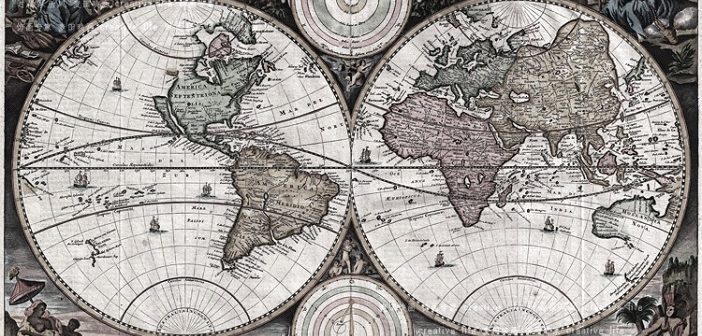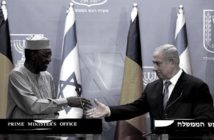As if a historical phenomenon that each stage of international political course requires a specific political framework that any political entity or concept should have governed and controlled by its specifications.
Recently, debates have been raised about the very existence of what came to be World Order, which donates a systemic modality to conduct the intentional affairs among nations. For strategists, the political formula of power balance within the equilibrium of international relations is indispensable as to existential fact. However, a kind of rational political system with international nature has descended to inaugurating a new chapter by which all sovereign states should have recognized and unconsciously succumb to its inescapable atmosphere. The core interpretations of such international order by many states have immensely varied on the basis of each state manipulation of its domestic and foreign political structures.
Other states, specifically the dominant powerful states have used their global influence not only to cheerfully satisfy by it, but as best to impose such equilibrium to be a sort of justice by other means. If the World Order has been chiefly emerged to preserve peace or at least to mitigate the upheavals as might be essential to be institutionalized within a much large scene, many catastrophic wars were resulted out of the World Order complications. Indeed the existing international trend is playing a crucial role. Perhaps because of the instantaneous decision making that’s affecting so many parts in the planet by reshaping all over what had been constant in international balance of power. Relatively, an ideological motivation as has been convinced and then pursued by former Eastern bloc in Cold War era or historical claims back far as to many centuries ago in the era of imperial expansionism, Western Europe almost the tangible example to symbolize such system.
Currently, a substantial manifestation of World Order has come boldly into the international arena. Of this tendency one would have to point out directly to the very meaning of World Order as it would have been exercised by certain states. In brief, World Order is not by any standard a mere political theory of strategic calculations in past and present, it is rather a way of single dominance and spread of specific kind of cultural influence. Nonetheless, maintaining peace in its political form at world in large has placed the use of force among states to be bounded by new regulations. Indeed, World Order will not become a panacea to the world mostly inherited security problems, but when a single great power sought to disseminate its political view it would become its own order, neither World Order nor at least a consensus doctrine by which all nations to follow. In this stance, the unipolar role of the United States especially in President Donald Trump administration has poised the components of World Order in a debacle. The US is always presented as a World Order guarantor, a role that at question since the US military intervention in different parts of the planet. As a World Order was set as a combination of contemporary human and economic issues being widely controversially debated to compromise human rights, democracy and other cultural and economic values should have other nations shared to reflecting the advanced global international system.
For now, another “weaponized” player with nuclear-led states has entered into the international scene. Nuclear challenge is not however a new tactic to the World Order. It has been rooted much earlier in international relations to render the phase of war as a symmetrical balance between belligerent and neutral states altogether. States with vast capabilities and industrialized powers have always sought to monopolize such nuclear and mass of Weapon of Mass Destruction WMD and later utilized as to make the world safer, in essence security levels. The equilibrium has completely changed since other states with a least developed nature like North Korea, Iran and others have possessed such nuclear capacities and the World Order for such states has become a historical myth instead of being a realpolitik. Currently, weaker if not failed states became an undisputed menace to the conventional international community. North Korea-USA recent escalating tensions are providing the exact type of nuclear balance, the incomparable capabilities between two countries have little effect under the nuclear umbrella by which each state conducts whether an antagonistic policy or to maintain peace within a much larger scope of World Order. Despite the provocative acts of North Korea by testing its ballistic missiles in a brazen challenge to the international world security institutions, the other part who represent the World Order including the USA, and EU states and the rest of neighboring Asian countries, under North Korea nuclear threat are reluctant to take a decisive action. However, both countries (USA & North Korea,) have reached a settlement to denuclearize North Korea, despite the uncertainty of that solution.
If the existing international political upheavals keep going on, there would be an untold challenge. And it is unlikely for the World Order to operate effectively. Moreover, it will no longer be defining international relations that were once included in interstate relations, international political institutions and an array of international definitions gave the entire political world its legitimacy.





